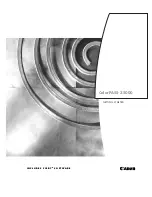
5-9
Chapter 5: BIOS
Table 5-5. Chipset Configuration Sub-menu
Menu Option
Description
North Bridge
Configuration
This sub-menu configures North Bridge features and shows configuration
information.
IOH
Configuration
This submenu configures Intel VT-d and Intel I/OAT in your system and
configures IOU PCIe port bifurcation controls.
Intel VT-d
This setting allows you to
Enable
or Disable Intel Virtualization Technology for in
your system.
Intel I/OAT
This setting allows you to
Enable
or Disable Intel I/O Acceleration Technology in
your system.
DCA Support
This static setting show DCA support as enabled in your system.
IOH 0/1
PCIe Port
Bifurcation
Controls
Both IOH 0 and IOH 1 PCIe port bifurcation controls are available to set IOU Link
Speed and PCIe Port settings. Options include Gen 1, Gen 2 or Gen 3 link speed
settings or various port PCIe settings for x4x4, x8, x4x4x4, x4x4x8, x8x4x4, x8x8
or x16 (default depends upon setting).
QPI
Configuration
This submenu statically displays Current QPI Link Speed and Current QPI Link
Freq as well as providing options for Isoc, QPI Link Speed Mode and QPI Link
Frequency Select.
Isoc
This setting allows you to Enable or
Disable
Isoc in your system.
QPI Link
Speed Mode
This setting allows you to select QPI Link Speed as being either
Fast
or Slow
mode.
QPI Link
Frequency
Select
This setting allows you to select the QPI link frequency. Options include
Auto
,
6.4 GT/s, 7.2 GT/s or 8.0 GT/s.
DIMM
Configuration
This submenu displays static Memory Configuration information (Current
Memory Mode, Current Memory Speed, Mirroring and Sparing), DIMM
Information and other option settings.
DIMM
Information
Static DIMM presence and size information is shown when this submenu is
selected.
Memory Mode
This setting sets the system memory mode. Options include the following:
•
Independent
(default) – All DIMMs are available to the operating system.
• Mirroring – The mainboard maintains two identical copies of all data in
memory for redundancy.
• Lock Step – The mainboard uses two areas of memory to run the same set
of operations in parallel.
• Sparing – A preset threshold of correctable errors is used to trigger fail-over.
The spare memory is put online and used as active memory in place of the
failed memory.
DRAM RAPL
Mode
This setting allows you to select DRAM RAPL Mode for your system. Options
include Disabled, DRAM RAPL Mode0 and
DRAM RAPL MODE1
.
DDR Speed
This setting allows you to force DDR speed for your system. Options include
Auto
, Force DDR3 800, Force DDR 1066, Force DDR 1333, Force DDR 1600
and Force SPD.
Channel
Interleaving
This setting allows you to select different channel interleaving settings. Options
include
Auto
, 1 Way, 2 Way, 3 Way and 4 Way.
Summary of Contents for SBI-7427R-S2L
Page 1: ...SBI 7427R S2L Blade Module User s Manual Revison 1 0 ...
Page 4: ...SBI 7427R S2L Blade Module User s Manual iv Notes ...
Page 8: ...SBI 7427R S2L Blade Module User s Manual viii Notes ...
Page 30: ...SBI 7427R S2L Blade Module User s Manual 2 18 Notes ...
Page 46: ...SBI 7427R S2L Blade Module User s Manual 3 16 Notes ...
Page 73: ...5 19 Chapter 5 BIOS ...
Page 74: ...SBI 7427R S2L Blade Module User s Manual 5 20 ...
Page 84: ...SBI 7127R SH Blade Module User s Manual A 10 Notes ...
Page 86: ...SBI 7427R S2L Blade Module User s Manual 0 2 SBI 7427R S2L ...
















































